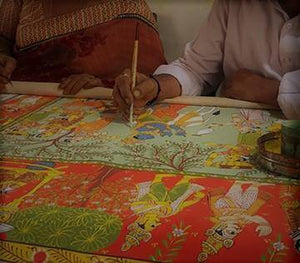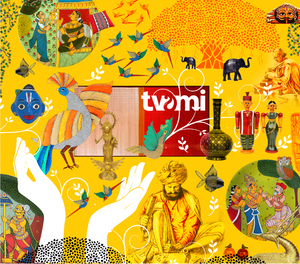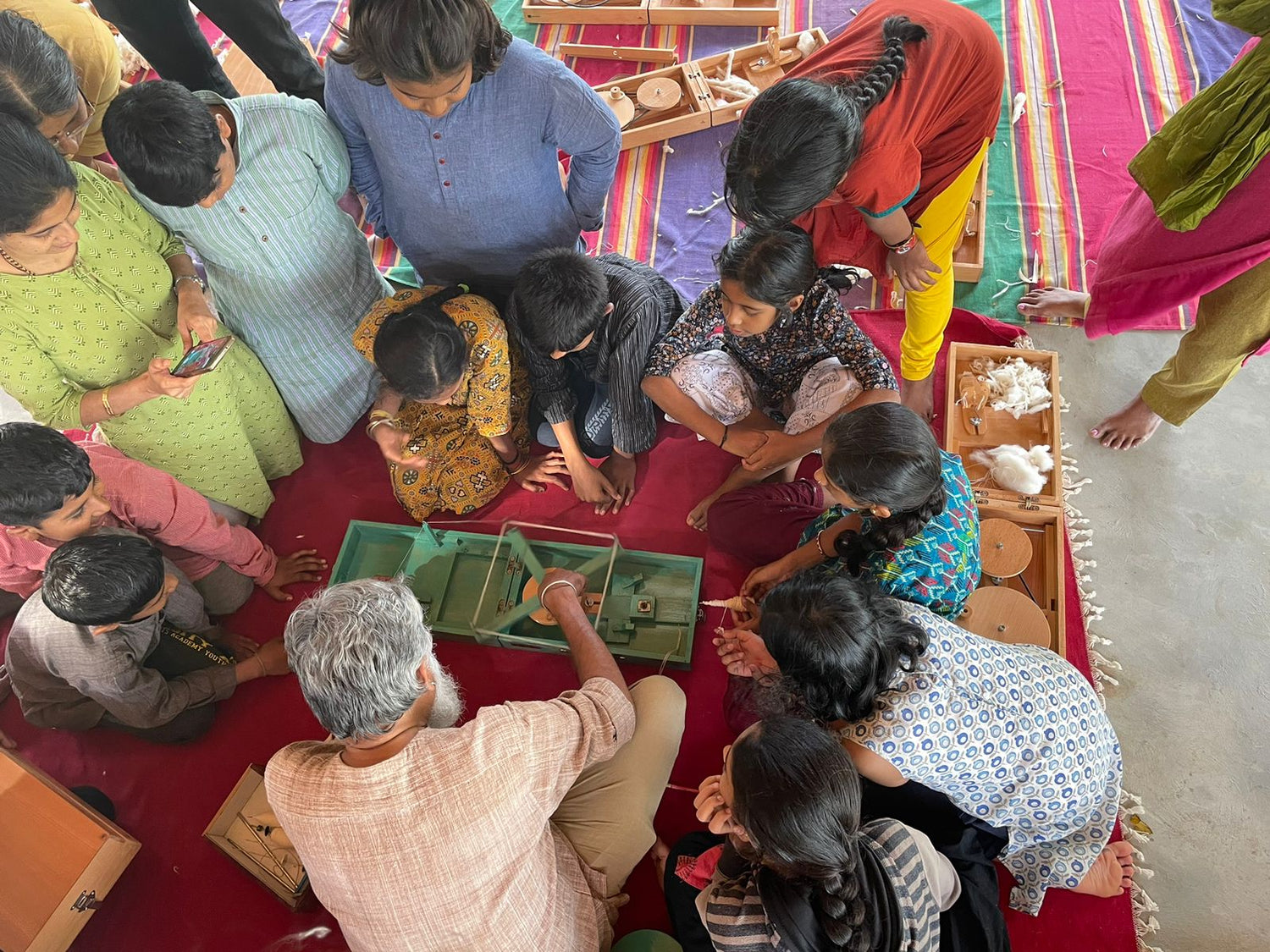Amina Yasmin is a seasoned kantha artist based in Gopdihi, in the Birbhum district of West Bengal. She is shy and quiet, but her struggle has made her strong. Life has not been easy for her, but she was determined to empower herself. Today, she is a member of Nanoor cooperative society, and has been successfully mentoring and supervising women from her village.
Kantha originated as a form of quilt making using easy running stitch, practised by rural housewives in Bengal. Later, the craft evolved, and women started to use the same format of stitching with intricate designs on sarees and garments.
Amina learnt the craft from her mother and grandmother. For over sixteen years she has been practising professionally. Her husband is a farmer and her brother-in-law runs a NGO for artisans. She has studied till the ninth standard and has two sons.
“It’s a very time-consuming craft and it needs lot of skills, but we are not recognized and paid enough for it.”, she says. The hardest part of it all is having to manage their household chores, raise their children, help their husbands with farming and still make time for the craft. Some pieces take a fortnight, some even a year depending on the intricacy of the work. Very often all the female members of a family stitch a single item together.
Amina has travelled around India with NGOs to teach kantha stitching at workshops and exhibits her own work. She takes orders from different boutiques and divides the job among those 150 women according to their skill. Skilled artists get the more detailed pieces while she trains others to develop their skills. She provides the raw material (thread and fabric) with the design specification to them. Once they are finished, they submit their work to her and collect payment. Amina attends different exhibitions organised by the government and other NGOs.
She said that artists get some support from the government. With immense gratitude she talks about how the Chief Minister even provided financial aid for her surgery.
The kantha stitch is mostly done by Muslim women. Sometimes they face criticism for stitching human and animal figures on their canvases, as their religion only permits floral and geometric patterns.
In this Covid19 scenario, almost all the orders are cancelled. Even if they want to work on new designs, there is no availability of proper fabric and thread.



